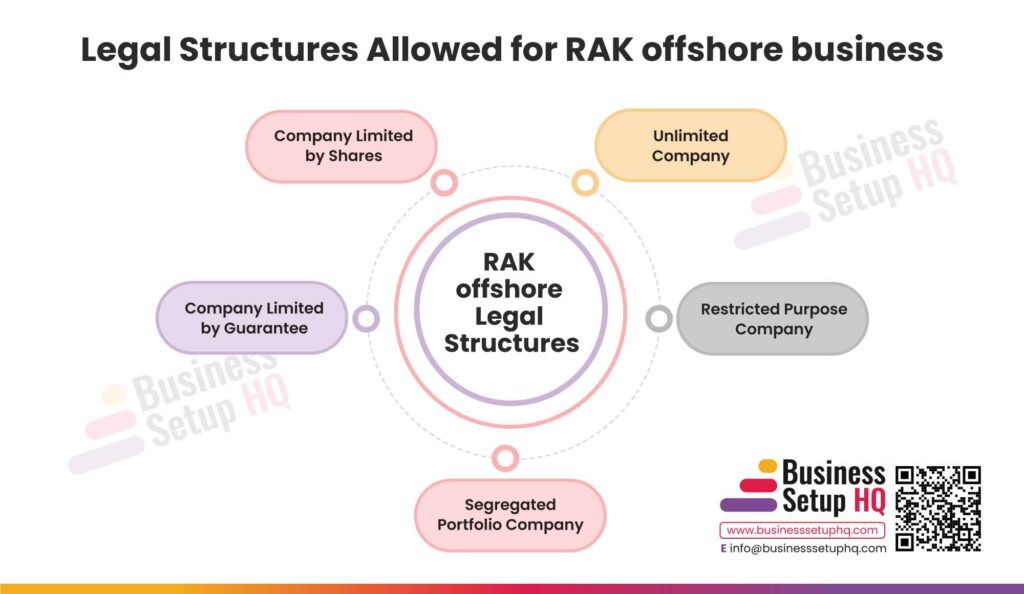Offshore Company Formation Options for Global Expansion
Offshore Company Formation Options for Global Expansion
Blog Article
Navigating the Globe of International Organization: Insights on Offshore Company Formation
Offshore Company Formation provides a tactical opportunity for international service procedures. It supplies significant advantages, such as tax obligation optimization and enhanced privacy. Nonetheless, the procedure is not without its difficulties. Comprehending the complexities of numerous jurisdictions and regulative requirements is crucial. As services think about these alternatives, the actions entailed can significantly affect their long-lasting success. What are the vital aspects that can bring about effective overseas monitoring?
Understanding Offshore Companies: Interpretation and Purpose
Offshore business have actually become a centerpiece in international company conversations due to their one-of-a-kind lawful and monetary frameworks. These entities are developed in jurisdictions beyond the owner's country of residence, typically with positive governing settings. Commonly, offshore companies serve different objectives, such as possession security, tax optimization, and boosted personal privacy. They can run in multiple markets consisting of money, technology, and trade, providing adaptability for international operations.The defining attribute of an overseas Company is its ability to perform company internationally while benefiting from minimized tax obligations and governing worries. This structure interest financiers and entrepreneurs looking for to diversify their portfolios and manage risks effectively. Additionally, several overseas jurisdictions use motivations to bring in international investment, causing a boost in the Formation of these companies. Comprehending the definition and objective of overseas companies is crucial for navigating via the complexities of worldwide commerce and funding flow.
Key Advantages of Offshore Company Formation
The Formation of an offshore Company uses a number of engaging benefits that attract business owners and financiers alike. One of the main benefits is tax obligation optimization; several jurisdictions offer favorable tax rates or exceptions, enabling services to make the most of earnings. Additionally, offshore business usually delight in higher privacy, as numerous jurisdictions have stringent privacy legislations shielding the identities of Company owners and shareholders.Another substantial benefit is property security. Offshore entities can guard properties from political instability and economic declines in the proprietor's home country. These companies can facilitate global trade, providing easy access to global markets and streamlining cross-border transactions.The flexibility in business framework likewise appeals to service owners, as offshore firms can be customized to satisfy certain operational requirements. In general, the calculated Formation of an overseas Company can bring about improved economic security, functional effectiveness, and a robust global presence.

Typical Challenges in Developing Offshore Entities
Developing overseas entities presents several difficulties that organizations should navigate. Key issues include regulative conformity, which can vary significantly across territories, and the impact of social distinctions on procedures. Additionally, organizations need to think about the threats and costs connected with keeping an offshore visibility, which can affect general stability.
Regulatory Compliance Issues
When they seek to develop offshore entities, maneuvering regulative compliance problems presents considerable challenges for businesses. Each territory has its very own collection of laws and policies, which can differ widely and might be challenging to navigate. Firms typically deal with difficulties pertaining to tax compliance, anti-money laundering regulations, and reporting needs. Additionally, changes in worldwide tax regulations can develop unpredictability, making it vital for businesses to stay upgraded on conformity responsibilities. Failing to abide by these guidelines can result in severe penalties, consisting of penalties and reputational damages. Recognizing the lawful structure and involving with neighborhood experts is vital for effective overseas operations, making certain that businesses can run within the boundaries of the legislation while optimizing their global approach.
Cultural Differences Influence

Price Considerations and Dangers
Guiding via the financial landscape of overseas entity Formation offers various expense factors to consider and integral risks. First configuration expenses typically include lawful costs, registration expenditures, and conformity costs, which can gather significantly. In addition, ongoing upkeep expenditures such as yearly costs and bookkeeping services must be factored in. Rising and fall regulative atmospheres in various jurisdictions pose threats, possibly leading to unexpected prices or legal issues. Organizations might likewise run into difficulties associated to taxation, banking, and reputational problems, which can influence earnings and functional performance. Potential business owners must carry out detailed due diligence and economic forecasting to mitigate these risks and guarantee lasting development. Comprehending these cost considerations is essential for effective overseas organization ventures.
Steps to Establish an Offshore Company
Developing an offshore Company entails several essential steps that require careful consideration. Trick variables consist of selecting the suitable jurisdiction and making sure conformity with neighborhood guidelines, along with collecting essential documents. Comprehending these components is essential for an effective overseas company configuration.
Selecting the Right Jurisdiction
Picking the best territory is crucial for anybody aiming to set up an offshore Company, as it can significantly affect the organization's legal commitments, tax obligation liabilities, and operational simplicity. Different factors ought to be considered, including the political security, regulative setting, and tax rewards provided by potential jurisdictions. Popular choices frequently consist of countries with desirable tax obligation regimens, such as the British Virgin Islands or Cayman Islands, due to their reduced or zero tax obligation rates. Additionally, the ease of doing service and the reputation of the jurisdiction can affect capitalist self-confidence and market accessibility. Eventually, a knowledgeable decision based upon thorough study will certainly guarantee the offshore Company is positioned for long-lasting success and conformity with global standards.
Called For Documents and Compliance
When establishing up an overseas Company, understanding the essential documentation and compliance requirements is essential to ensure a smooth procedure. Key papers usually consist of a certification of consolidation, a memorandum and write-ups of association, and evidence of identity for investors and directors. Some territories may call for extra information, such as service strategies or bank references. Compliance with neighborhood laws is crucial, which typically involves designating a registered agent and keeping a registered workplace. Regular coverage and adherence to tax obligation commitments must likewise be thought about. Failing to follow these needs can bring about fines or even dissolution of the Company. Thorough preparation and appointment with legal professionals can aid navigate these intricacies efficiently.
Selecting the Right Territory for Your Offshore Company
Just how can one figure out one of the most ideal territory for an offshore Company? Selecting the appropriate territory requires careful factor to consider of several factors. The legal and tax obligation environment plays an important role; territories with desirable tax obligation routines might boost organization productivity. Additionally, the political stability and economic climate of a location can impact lasting company viability.Another important facet is the accessibility of financial services and financial infrastructure, which promote smooth operations. Prospective service owners ought to likewise think about the convenience of operating, consisting of the speed of registration and the clarity of regulations.Furthermore, language barriers and cultural distinctions can impact procedures; for that reason, lining up with a territory that lines up with business goals and individual comfort is crucial. Eventually, thorough research study and specialist suggestions can lead business owners in making an informed decision that aligns with their tactical goals.
Conformity and Regulative Considerations

Finest Practices for Taking Care Of an Offshore Organization
Managing an overseas service requires tactical planning and meticulous execution to enhance efficiency and reduce threats. Initially, establishing a robust compliance structure is vital to navigate varying regulations throughout territories. Regular audits and danger analyses help recognize prospective vulnerabilities.Moreover, leveraging local know-how through collaborations with local professionals can improve functional performance and social understanding. Using innovation, such as cloud-based monitoring systems, enhances interaction and data management, making it possible for better decision-making. Additionally, maintaining transparent financial records and ensuring prompt tax filings are important to copyright the Company's stability. Buying personnel training and growth fosters a knowledgeable labor force, advertising technology and adaptability.Finally, establishing clear performance metrics and key performance signs (KPIs) helps evaluate business progress and educate critical changes. By sticking to these finest techniques, companies can effectively manage their overseas procedures, ensuring long-lasting success and sustainability in a competitive international industry.
Often Asked Concerns
What Is the Cost of Creating an Offshore Company?
The cost of creating an offshore Company varies widely depending on jurisdiction, lawful demands, and solutions required. Commonly, costs can range from a couple of hundred to several thousand dollars, consisting of enrollment, compliance, and annual fees.
The length of time Does It Require To Develop an Offshore Entity?
The time required to establish an overseas entity differs considerably, typically ranging from a couple of days to several weeks (offshore company formation). Variables influencing this duration consist of territory, called for documents, and the efficiency of the provider included
Can People Form Offshore Companies Without a Company Companion?
People can undoubtedly create offshore companies without a business partner. Lots of territories allow single-member entities, equipping entrepreneurs to develop and manage their companies separately, while still gaining from prospective tax advantages and legal protections.
Exist Any Type Of Tax Obligation Advantages for Foreign Investors?

What Kind Of Organizations Frequently Use Offshore Business?
Offshore firms are often used by numerous industries, including e-commerce, money, and innovation. These entities usually offer objectives such as asset security, tax obligation optimization, and privacy, attracting both individual entrepreneurs and multinational firms. Offshore firms have actually ended up being a focal point in international service conversations due to their unique legal and monetary structures. They can run in several fields including innovation, profession, and money, providing flexibility for worldwide operations.The defining feature of an offshore Company is its capacity to conduct organization globally while benefiting from lowered tax responsibilities and governing problems. Furthermore, overseas companies frequently enjoy greater confidentiality, as lots of territories have stringent personal privacy regulations shielding the identities of Company owners and shareholders.Another substantial benefit here is asset defense. These business can promote global profession, giving easy access to global markets and streamlining cross-border transactions.The versatility in company structure also allures to service owners, as overseas business can be customized to meet particular functional requirements. Picking the best territory is vital for any person looking to establish up an overseas Company, as it can greatly influence the organization's legal commitments, tax obligation liabilities, and operational simplicity.
Report this page